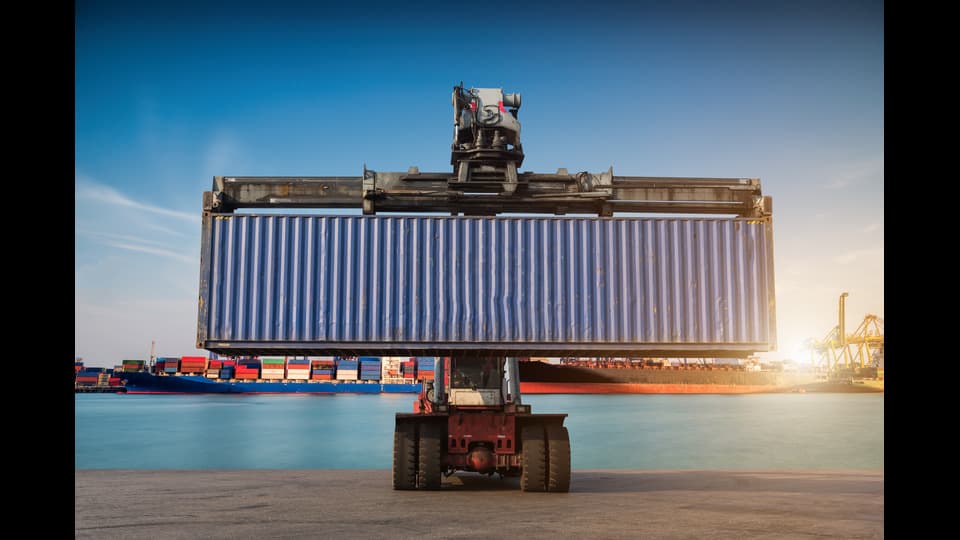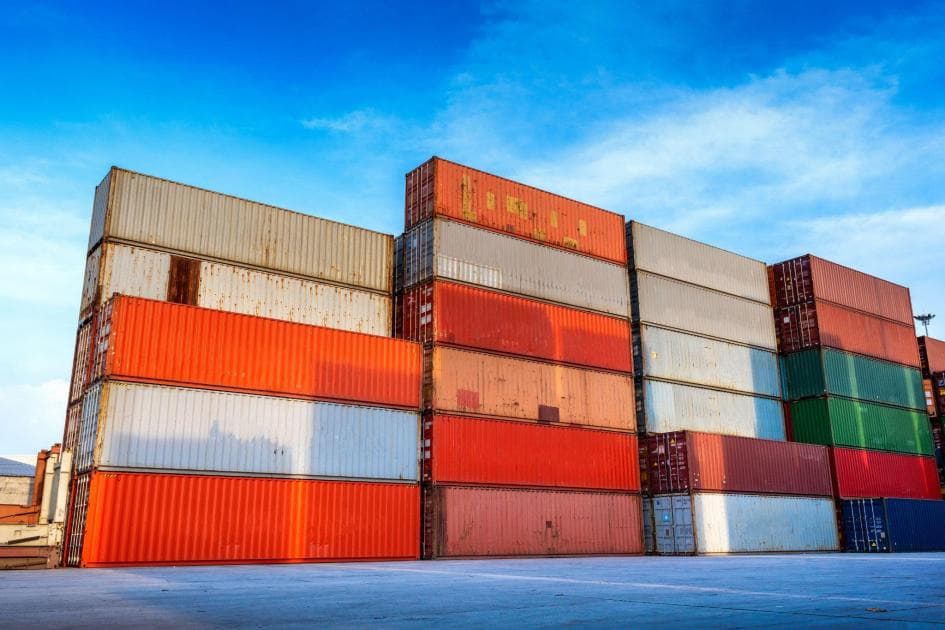LCL Shipping Explained: How It Works and Why It Matters

Shipping solutions that ensure efficient global trade operations at affordable rates are at the core of international commerce. Businesses and individuals who need international cargo transport without filling complete shipping containers should choose LCL (less than Container Load) shipping. This provides adaptable options, monetary benefits, and simple international shipment management capabilities.
This blog examines LCL shipping practices alongside explanations of its operational foundation and system benefits and demonstrates how shipping container calculators and CBM shipping calculators enhance procedural streamlining.
What Is LCL Shipping?
It enables shippers to split one container between multiple users through area-based billing. Businesses that need international door to door shipping services for quantities that do not fill a full container should consider this shipping.
A full container load (FCL) ships one shipment per container, while less-than-container-load shipping allows several shipments to share the same container. Worldwide small package shipping using LCL has become a budget-friendly solution for businesses and individuals who need such services.
When is LCL shipping right for your business?
Your business should consider LCL shipping if smaller shipments need fast delivery rather than waiting for a complete container booking opportunity. This shipping delivers the following principal advantages to businesses:
- Move smaller shipments with lower costs
- Avoid high air freight cost per kg
- Reduce your inventory costs
- Find space during peak season
Shipment through FCL or LCL is the primary distinction due to container space allocation methods. Multiple shipments under this consolidation use shared container space. Still, FCL shipping requires a single consignment to occupy an entire container and will not wait to fill the container volume.
Benefits of LCL Shipping
This shipping enables businesses of all sizes to identify new export markets. international door to door shipping needs this services more than ever since they provide essential support for the following key reasons:
- Cost Efficiency: Many businesses and supply chains benefit economically from LCL shipping when sending smaller quantities than containerized. This cost-effectiveness enables them to remain competitive in the market.
- Flexibility: The combination of this shipping enables e-commerce businesses and shippers to deliver multiple packages to various customers at minimal expense, thus granting extensive logistical freedom.
- Accessibility: The Less-Than-Container-Load solution allows small businesses to enter international markets while making global trade more accessible.
- Reduced Inventory Costs: LCL shipments enable businesses to handle smaller product volumes, reducing storage requirements and enabling market testing in international locations without significant initial investments.
- Improved Business Operations: This system provides real-time shipment status updates, helping businesses plan schedules and activities more effectively. It is a resource-saving system that eliminates the need for continuous shipment tracking.
- Faster Delivery: This shipping provides weekly voyage times and quicker delivery than FCL container methods. Thus, improved customer satisfaction is possible through this shipping.
Freight Forwarding Services
Businesses looking for freight forwarding services can benefit from LCL shipping as a cost-effective alternative to traditional FCL methods. Freight forwarders help consolidate shipments, ensuring seamless international trade while reducing shipping expenses.
Drawbacks of LCL Shipping
This shipping presents practical limitations linked to the combined transportation of multiple shipments and cargo. It introduces factors or situations like:
- Potential Delays: The process involving both consolidation and deconsolidation produces this outcome. Transit durations become longer because of either factor.
- Increased Handling: The combination of multiple cargo items creates a situation where containers need many stops and multiple handling parties. The combined shipments become vulnerable to various unexpected risks throughout transportation.
- Complexity: Multiple consolidated shipments traveling the same route negatively impact the delivery process due to their divergent end locations. A single cause can make logistical operations complex.
How does an LCL Shipment work?
An LCL shipment presents stakeholders with clean and clear steps throughout the process. The process are as follows:
Step 1: Register with the shipping company
Getting in touch with the shipping company marks the initial step, which involves discussing all requirements.
Step 2: Provide information about the package
The shipping company determines costs and routes according to shipment needs through this shipping procedures. Consolidated cargo information allows them to combine packages with additional shipments inside one container.
Step 3: LCL dispatch and shipping
The shipping company warehouse receives the package before matching it with other shipments to place them together in one container. The process of loading cargo into cargo containers is named container stuffing.
Step 4: Arrival and delivery
The container moves from ship to warehouse when it reaches its planned destination. The cargo becomes separated during the de-grouping phase.
International Logistics Services: Enhancing LCL Efficiency
The role of international logistics services in LCL shipping is crucial. These services streamline the movement of goods across borders, ensuring compliance with customs regulations and minimizing delays. Companies utilizing professional logistics services gain improved efficiency and reliability in their supply chain.
Tools to Optimize Your LCL Shipment
- Shipping Container Calculator: A shipping container calculator enables businesses to determine product space requirements, which leads to better shipping performance and reduced expenses.
- CBM Shipping Calculator: The CBM shipping calculator evaluates products in cubic meters to help businesses maximize cargo space delivery while reducing costs caused by unused container space.
- Heavy Lift Shipping for Oversized Cargo: Large or oversized items can be safely transported through specialized heavy lift solutions during shipping operations.
Ocean Freight
As a key component of ocean freight, LCL shipping allows businesses to transport smaller shipments affordably without requiring a full container load. This makes it an excellent choice for companies needing global reach while maintaining flexibility in their logistics.

Is LCL Shipping Safe For My Cargo
Multiple shipment consignments combine into one container through this shipping to achieve full container volume.
This method proves ineffective for handling every type of cargo. During this shipping processes, reefer or cold-chain products do not maintain their quality and safety standards. However, many cargo types, including fashion products, electronics, and furniture combined with other compatible items, benefit from these transportation guidelines, which make this shipping a secure option.
Handling and Security
Partnership loads are common in LCL shipping because multiple orders combine to form a single container. The freight forwarder optimizes space efficiency by properly combining different shipments. During the following stage, security measures, including container seals and terminal surveillance, need to be implemented. Terminal surveillance is an effective method of preventing theft.
Warehousing and Logistics
Warehousing and logistics play an essential role in LCL shipments, ensuring that goods are stored safely before consolidation and efficiently managed until final delivery. Proper warehousing solutions help reduce transit times and improve supply chain efficiency.
Insurance and Protection
The combined transport of LCL cargo within a shared container exposes it to increased risks of damage or loss compared to standard full-container logistics.
The shipper requires insurance to safeguard their investment. The shipping lines provide minimal coverage through carrier liability, yet shippers can choose between this option and dedicated cargo insurance. Companies have two primary insurance options: carrier liability coverage and specific cargo insurance policies that offer protection against cargo loss, damage, and theft.
Why Choose CargoesPi ?
At CargoesPi, we specialize in LCL shipping, offering:
- Efficient international door to door shipping
- Shipping container calculator & CBM shipping calculator support
- Customized shipping solutions
- Expert guidance in heavy lift shipping
Our mission is to transform global logistics by creating a straightforward process for companies seeking efficient shipping services.
Final Thoughts: Is LCL Shipping Right for You?
This shipment provides an affordable shipping alternative with adaptable features for your needs. The reliable and budget-friendly shipping service allows businesses of all sizes and individuals with international delivery needs.
Would you like to streamline your shipping procedure? Contact CargoesPi today for specialized shipping services tailored to your needs.
About the Author
Elvin, the founder of CargoesPi, is an expert in international logistics and freight forwarding. With years of experience at Fr. Meyer's Sohn (FMS), a top global freight forwarder, he specializes in optimizing LCL and FCL shipping solutions. His expertise extends to digital logistics, using technologies like Python and JavaScript to develop warehousing, shipment tracking, and ERP systems. Dedicated to streamlining global trade, Elvin ensures businesses receive efficient, cost-effective shipping solutions tailored to their needs.

